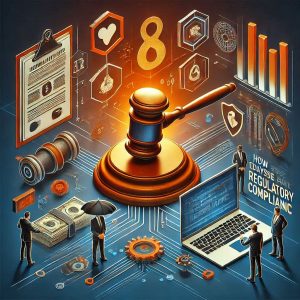In today’s rapidly evolving technological landscape, audit and tax firms are facing unprecedented challenges and opportunities. The rise of artificial intelligence (AI) and machine learning is reshaping the industry, prompting firms to reevaluate their processes and embrace digital transformation. While generative AI (GenAI) is making headlines, the foundation of any successful modern audit or tax practice lies in robust, industry-specific Enterprise Resource Planning (ERP) systems.
The AI-Driven Landscape
Recent trends show that AI is becoming increasingly prevalent in the audit and tax sectors:
- Enhanced Data Processing: AI technologies are revolutionizing how professionals handle vast amounts of data, enabling faster and more accurate analysis of both structured and unstructured information.
- Addressing Staffing Challenges: With labor shortages becoming more acute, firms are turning to technology to automate routine tasks and allow staff to focus on higher-value activities.
- Predictive Analytics: Advanced AI systems are being used to flag potential areas of concern proactively, enhancing the accuracy and efficiency of audits.
- Human-Machine Collaboration: The future of audit and tax work lies in the seamless integration of human expertise with AI capabilities.
The Critical Role of ERP Systems
While AI grabs headlines, the true backbone of digital transformation in audit and tax firms is a robust, industry-specific ERP system. Here’s why:
- Data Integration: A specialized ERP system acts as a central hub for all your firm’s data, providing the foundation necessary for any AI or advanced analytics implementation.
- Process Automation: Before diving into AI, firms need to streamline their core processes. An ERP system automates routine tasks, improving efficiency and reducing errors.
- Compliance and Security: With increasing regulatory scrutiny, ERP systems ensure that your firm maintains compliance and protects sensitive client data.
- Scalability: As your firm grows, a flexible ERP system grows with you, accommodating new clients, services, and technological advancements.
- Client Experience: Modern ERP systems often include client portals and communication tools, enhancing client satisfaction and retention.
Preparing for the Future
To stay competitive in this AI-driven landscape, audit and tax firms must:
- Assess Current Systems: Evaluate your existing technology stack. Is your ERP system capable of supporting future AI integrations?
- Invest in Training: Ensure your team is proficient with your ERP system and understands its full capabilities.
- Stay Informed: Keep abreast of AI developments in the industry, but focus on building a solid technological foundation first.
- Develop a Digital Strategy: Create a roadmap for your firm’s digital transformation, with your ERP system at its core.
- Choose the Right Partners: Select technology providers who understand the unique needs of audit and tax firms and can support your long-term digital goals.
Xintesys Legal Practice Management Software
While the audit and tax industry is rapidly evolving with AI technologies, we recognize that not all solutions require AI integration to deliver significant value. Our Audit and Tax Firm Management Software is designed to efficiently manage an audit and tax firm’s operations, focusing on proven technologies and methods to streamline workflows and improve productivity.
Key features of our software include:
- Project Management – Organize and track audit and tax projects, deadlines, and tasks in one place
- Time and Expense Tracking – Accurately record billable hours and expenses for seamless invoicing
- Client Management – Store client information, communication, and project history in a secure and accessible database
- Document Management – Store, share, and collaborate on audit and tax documents with ease
- Compliance and Risk Management – Automate compliance tasks, track regulatory requirements, and identify potential risks
- Financial Management – Streamline financial operations, including invoicing, accounts receivable, and accounts payable
Conclusion
The audit and tax industry is on the cusp of an AI revolution. However, the key to success in this new era isn’t just about adopting the latest AI tools. It’s about building a solid digital foundation that can support these advanced technologies. A robust, industry-specific ERP system is the cornerstone of this foundation, enabling firms to streamline operations, ensure compliance, and pave the way for future innovations.
As you consider your firm’s digital future, ask yourself: Is your current technology stack ready for the challenges and opportunities ahead? If not, it may be time to explore how a specialized ERP system can position your firm for success in the age of AI.
Ready to take the next step in your firm’s digital transformation journey? Contact us today to learn how our specialized ERP system can prepare your audit or tax practice for the AI-driven future.
Experience Efficient Audit and Tax Firm Management
Ready to transform your law firm’s operations with a proven, reliable technology solution? We invite you to explore our Audit and Tax Firm Management Software through a free, no-obligation demo.




